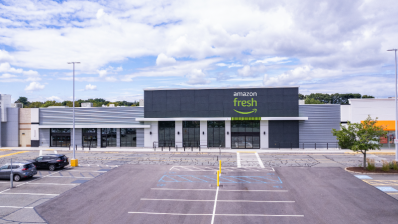Part of the growing Sunbelt region, Charlotte recently took the number two spot on Outside magazine’s list of “The 20 Most Livable Towns and Cities in America.” People have clearly gotten the memo, as evidenced by the nearly 20% population increase over the last decade. Long known as a banking powerhouse, (home to the headquarters of Bank of America, Wells Fargo, and Truist), Charlotte is becoming a magnet for corporate relocation, with four Fortune 1000 companies moving to the area in the last three years.
Charlotte took the #11 spot nationwide on our 2021 Best Places to Invest Report and also ranked in the top five for three other asset classes:
#5 for Office
#2 for Retail
#3 for Multifamily Acquisition
We're keeping an eye on real estate investment opportunities in Charlotte and here's why.
1. Retail sales growth expected to exceed top market average through 20251.
Charlotte ranked #2 for Retail in our 2021 Best Places to Invest report.
While many cities across the U.S. are seeing slower retail sector recovery in the wake of COVID-19, Charlotte’s resilient labor market has been a source of stability. Strong spending power from high household incomes have also bolstered the local retail industry, along with the area’s rising population and high-wage job growth. Retail vacancies in Charlotte have remained at around 4.3%, just under the national average of 5%. Despite an annual retail rent gain of 3%, the market’s affordability remains intact.
2. Charlotte has seen substantial rent growth and high occupancy rates for multifamily properties.
Charlotte ranked #3 for Multifamily Acquisition in our 2021 Best Places to Invest report.
In 2009, Charlotte recorded $76 million in multifamily property sales. After a decade of consistent growth in this area, Charlotte eclipsed that figure with nearly $3 billion in sales by the end of 2020.
Fueled by in-migration from out of state (especially from the Midwest and Northeast) and sustained economic improvement in the area, the Charlotte rental market is one of the fastest rising in the U.S., boasting a 12.1% rent growth rate in the last year. Despite substantial growth, Charlotte’s rental rates remain below the national average, making it a highly desirable location for those looking to move to a more affordable market.
3. Charlotte's office leasing activity was up 105% Q2 over Q1 2021.
Charlotte ranked #5 for Office in our 2021 Best Places to Invest report.
As of Q2 2021, Charlotte’s office market had recovered 90% of office occupancy lost over the previous three quarters. Corporate relocations and expansions have comprised over 45% of total leasing volume in Charlotte over the last six years and this trend shows no signs of slowing. Three notable corporations that have recently relocated to Charlotte include Credit Karma (fintech), USAA (insurance) and Robinhood (fintech). With Class A office asking rates predicted to continue their climb through the end of 2022, the value of these properties could follow suit.
What this means for investors:
Charlotte continues to be a leader in economic development in the U.S., attracting corporations and individuals with a strong job market and relative affordability. In the last year, Charlotte has added over 45,000 jobs, with little sign of slowing down.
As employers compete for increased square footage and Class A, amenity-rich office space, it’s reasonable to assume that demand will fuel the growth of rental rates in the office sector, potentially increasing overall net operating income (NOI) and delivering strong returns to investors. The same can be expected to play out in multifamily, as Charlotte continues to experience rapid population growth amid a competitive housing market.
1 - https://www.greenstreet.com/rea/library/market_reports - Charlotte Mall Market Snapshot - 9/9/2021


